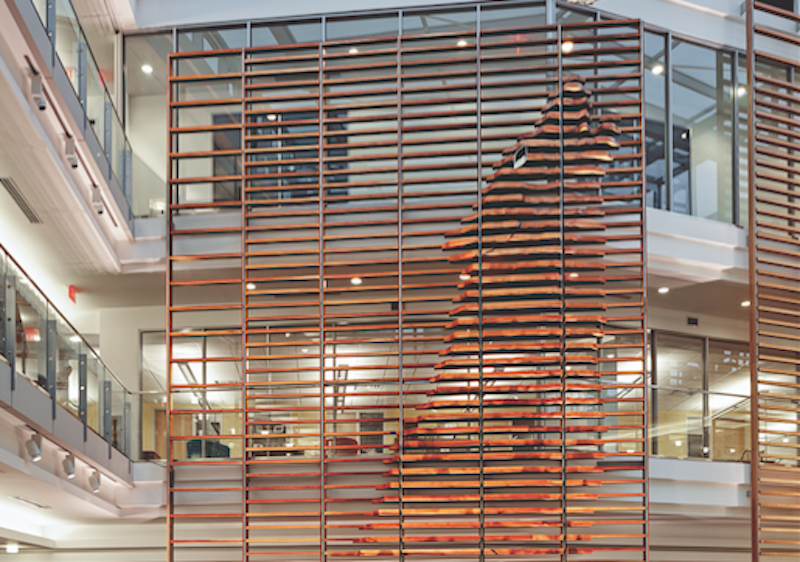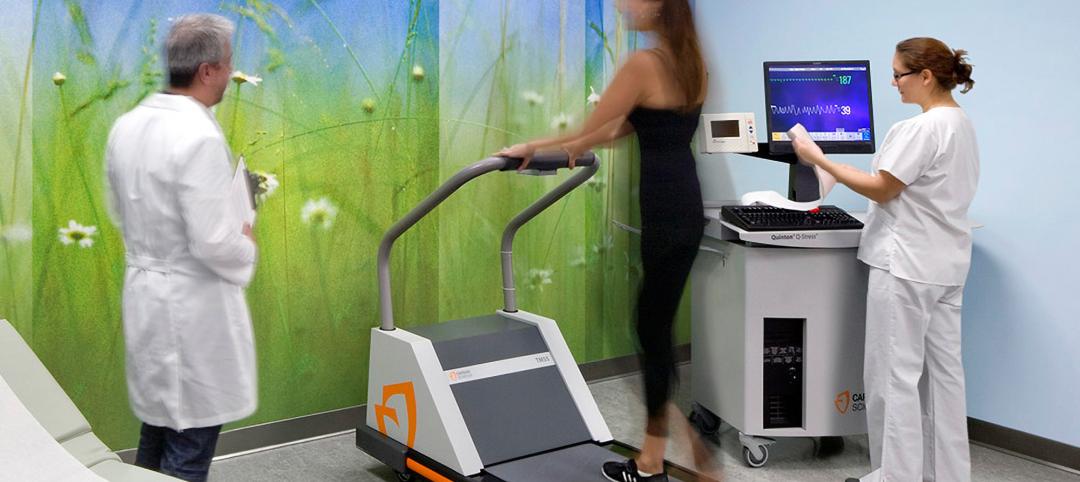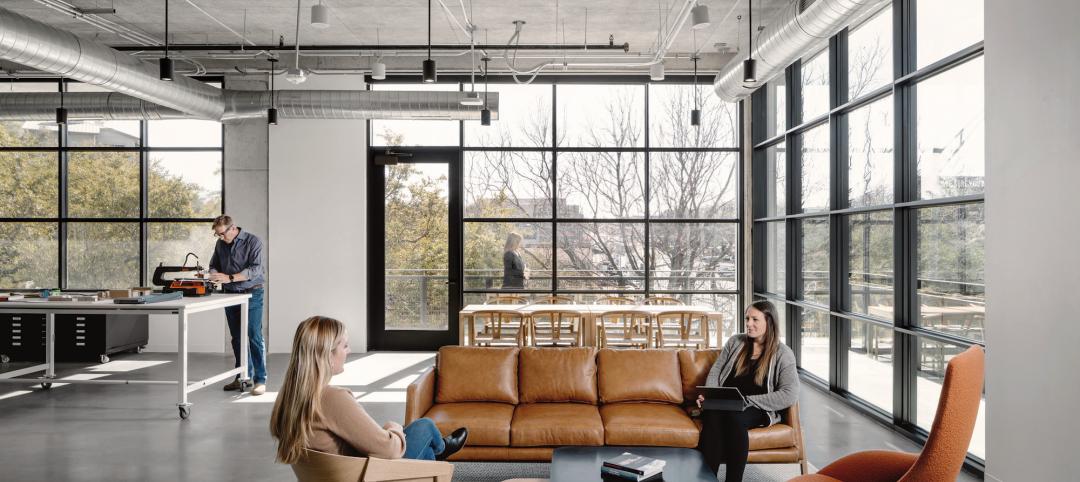Funding for the nation’s 1,700 or so public two- and four-year colleges remains well below pre-recession levels. Average state spending per student has fallen 17%—about $1,525—since the recession, according to the Center on Budget and Policy Priorities.
TOP 100 UNIVERSITY ARCHITECTURE FIRMS
Rank, Firm, 2015 Revenue
1. Gensler $79,810,000
2. Perkins+Will $59,960,000
3. CannonDesign $56,800,000
4. EYP $46,539,910
5. Stantec $37,993,785
6. Robert A.M. Stern Architects $24,802,000
7. Clark Nexsen $24,561,000
8. S/L/A/M Collaborative, The $21,833,000
9. CO Architects $21,475,500
10. HDR $21,406,400
TOP 100 UNIVERSITY CONSTRUCTION FIRMS
Rank, Firm, 2015 Revenue
1. Turner Construction Co. $1,124,325,847
2. Whiting-Turner Contracting Co., The $772,402,993
3. Skanska USA $535,834,200
4. Messer Construction Co. $521,400,000
5. Barton Malow Co. $470,447,175
6. Gilbane Building Co. $429,741,000
7. McCarthy Holdings $357,875,128
8. Consigli Building Group $343,722,913
9. Clark Group $335,471,145
10. Hensel Phelps $305,040,000
TOP 70 UNIVERSITY ENGINEERING FIRMS
Rank, Firm, 2015 Revenue
1. AECOM $65,000,000
2. WSP | Parsons Brinckerhoff $37,988,000
3. Jacobs $31,600,000
4. Affiliated Engineers $19,264,000
5. KJWW / TTG $16,943,913
6. Arup $15,856,593
7. Vanderweil Engineers $15,351,800
8. Simpson Gumpertz & Heger $13,586,000
9. Thornton Tomasetti $13,363,234
10. Dewberry $12,904,401
Money woes will continue to affect capital budgets and operations and maintenance allocations, says Mike Broge, PE, LEED AP, Higher Education Market Leader with Affiliated Engineers. That will only worsen an already significant backlog of deferred maintenance at many institutions, he says.
Budget constraints are compelling some public institutions to pursue alternative methods of financing their major building projects.
The University of Kansas leveraged a public-private partnership to initiate a $350 million redevelopment of its central district. The P3 deal includes a 265,000-sf integrated science building, a 40,000-sf student union, a central utility plant, student housing, and infrastructure upgrades. Most of the projects are scheduled for completion in mid-2018.
The University of Kentucky is among the schools that are enlisting developers to oversee their large on-campus projects. Memphis-based EdR is developing 14 new residence halls totaling 2.6 million sf on the Lexington campus. Two buildings are scheduled to open this fall; the others will be completed next summer.
“This approach keeps costs off universities’ books while still allowing them to stay ahead of the competitive curve with their facilities and on-campus amenities,” says Tim Steigerwald, SVP with Messer Construction.
Lack of capital has also contributed to a surge in master planning projects. Steigerwald says the University of Wisconsin is developing master plans for at least three large colleges, plus an overall campus infrastructure master plan. The goal: to achieve more efficient use of existing facilities through lower-cost renovations and spatial reconfigurations, thus avoiding costly additions or new facilities.
THE RISE OF INNOVATION SPACES ON Campus
To better equip students to excel in their future work environments, schools are developing a range of innovation spaces that promote hands-on, cross-disciplinary learning, foster unique business and industry partnerships, and encourage entrepreneurship.
Jeff Stebar, AIA, LEED AP, Higher Education Practice Leader at Perkins+Will, says that a phenomenon he calls “serendipitous cross-pollination” can occur across multiple disciplines working together in the same place. Such a structure models the 21st-century workplace and adds richness to the educational experience. “These spaces are typically owned by everyone, not by any specific college or dean,” he says.
That’s the idea behind the Collaborative Learning and Innovation Complex at Tufts University, Medford, Mass. Designer Stantec is transforming a 100-year-old warehouse into a new 95,000-sf facility that will house seven departments, ranging from physics and robotics to human development and community health. The teaching/research building incorporates open research labs shared by multiple areas of study, along with public social zones to foster interdepartmental collaboration. The project is part of a new Science and Technology Corridor that will also include a new 80,000-sf Science and Engineering Complex, designed by Payette. It is scheduled to open in 2017.
At the University of Utah, Lassonde Studios, designed by CannonDesign and Yazdani Studio, fuses a 400-bed residence hall with 20,000 sf of “garage space” where students can build a prototype, attend an event, or launch a business. Opening this fall, the facility has been designed to advance the university’s nationally ranked entrepreneurship program.
College libraries are also adapting to include technology-driven laboratories, informal group study workspaces, and cafés. A new 220,000-sf library under construction on Temple University’s main campus in Philadelphia will replace an existing 1960s-era facility with a dynamic, technology-rich environment. Designed by Snøhetta and Stantec, the $170 million project will accommodate Temple’s 2.5-million volume collection, student study space, research space, and staff areas.
A renewed interest in health careers is fueling demand for new health profession classroom buildings, clinical labs, and health-related research facilities.
“This trend is due in large part to a growing number of students who recognize the career opportunities afforded by a healthcare industry in the midst of a significant workforce shortage,” says Steve Rhoades, PE, LEED AP, Managing Principal, KJWW.
A 70,000-sf addition to the Columbia University nursing school is currently under construction in Manhattan. Designed by CO Architects and FXFOWLE, the seven-story structure will supplement the school’s existing classroom facilities with healthcare simulation technology, research facilities, and collaboration space. Expected to open in 2017, the building will include mock operating rooms, ICUs, ERs, and exam rooms where students can hone their nursing skills.
Private institutions are also jumping on the healthcare education bandwagon. The University of Pikeville, a private liberal arts college of 2,300 students in the coal country of Kentucky, is building a new 100,000-sf health professions education building that will open next year. Designed by Ayers Saint Gross, the facility will house the Bluegrass State’s first College of Optometry, as well as a nursing facility. The project is part of a strategic plan to upgrade the education needs of the Central Appalachia region and meet the growing demand for optometrists.
RETURN TO THE GIANTS 300 LANDING PAGE
Related Stories
Adaptive Reuse | Jul 27, 2023
Number of U.S. adaptive reuse projects jumps to 122,000 from 77,000
The number of adaptive reuse projects in the pipeline grew to a record 122,000 in 2023 from 77,000 registered last year, according to RentCafe’s annual Adaptive Reuse Report. Of the 122,000 apartments currently undergoing conversion, 45,000 are the result of office repurposing, representing 37% of the total, followed by hotels (23% of future projects).
Hotel Facilities | Jul 26, 2023
Hospitality building construction costs for 2023
Data from Gordian breaks down the average cost per square foot for 15-story hotels, restaurants, fast food restaurants, and movie theaters across 10 U.S. cities: Boston, Chicago, Las Vegas, Los Angeles, Miami, New Orleans, New York, Phoenix, Seattle, and Washington, D.C.
Sustainability | Jul 26, 2023
Carbon Neutrality at HKS, with Rand Ekman, Chief Sustainability Officer
Rand Ekman, Chief Sustainability Officer at HKS Inc., discusses the firm's decarbonization strategy and carbon footprint assessment.
Sports and Recreational Facilities | Jul 26, 2023
10 ways public aquatic centers and recreation centers benefit community health
A new report from HMC Architects explores the critical role aquatic centers and recreation centers play in society and how they can make a lasting, positive impact on the people they serve.
Multifamily Housing | Jul 25, 2023
San Francisco seeks proposals for adaptive reuse of underutilized downtown office buildings
The City of San Francisco released a Request For Interest to identify office building conversions that city officials could help expedite with zoning changes, regulatory measures, and financial incentives.
Designers | Jul 25, 2023
The latest 'five in focus' healthcare interior design trends
HMC Architects’ Five in Focus blog series explores the latest trends, ideas, and innovations shaping the future of healthcare design.
Urban Planning | Jul 24, 2023
New York’s new ‘czar of public space’ ramps up pedestrian and bike-friendly projects
Having made considerable strides to make streets more accessible to pedestrians and bikers in recent years, New York City is continuing to build on that momentum. Ya-Ting Liu, the city’s first public realm officer, is shepherding $375 million in funding earmarked for projects intended to make the city more environmentally friendly and boost quality of life.
Market Data | Jul 24, 2023
Leading economists call for 2% increase in building construction spending in 2024
Following a 19.7% surge in spending for commercial, institutional, and industrial buildings in 2023, leading construction industry economists expect spending growth to come back to earth in 2024, according to the July 2023 AIA Consensus Construction Forecast Panel.
Hotel Facilities | Jul 21, 2023
In Phoenix, a former motel transforms into a boutique hotel with a midcentury vibe
The Egyptian Motor Hotel’s 48 guest rooms come with midcentury furnishings ranging from egg chairs to Bluetooth speakers that look like Marshall amplifiers.
Office Buildings | Jul 20, 2023
The co-worker as the new office amenity
Incentivizing, rather than mandating the return to the office, is the key to bringing back happy employees that want to work from the office. Spaces that are designed and curated for human-centric experiences will attract employees back into the workplace, and in turn, make office buildings thrive once again. Perkins&Will’s Wyatt Frantom offers a macro to micro view of the office market and the impact of employees on the future of work.

















